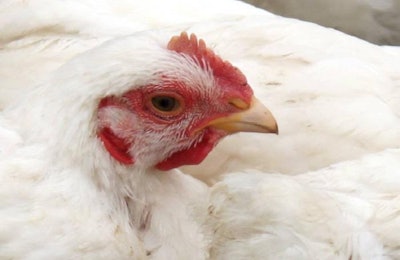
Despite recent challenges to its operations in the North West province, Country Bird Holdings has confirmed its commitment to retaining its facility in the area.
Previously, production at the firm’s plant in Mahikeng has been disrupted by power and water outages, as well as community protests, reports Independent Online (IOL).
However, discussions between the poultry company and the regional government have addressed these issues.
Under its frozen chicken brand, Supreme, the company has made significant investments in the North West region of the province, according to chief executive Brendon de Boer. He said Country Bird plans to continue operations there, and consider further investments. However, these commitments depend of effective law enforcement, and an effective working relationship with the government, he said.
In South Africa, disruptions to water and electricity supplies have been attributed to load shedding, reports IOL.
Under this procedure, the supply company carried out a controlled shutdown of supply to a limited part of the network in response to an unplanned event. Aim of this control measure is to prevent a more widespread blackout, according to the country’s leading electricity supplier, Eskom.
In July of this year, there were reports of rioting and other civil threats to the country’s poultry operations. As processing facilities faced threats of arson, deliveries of chicks and feed to farms were disrupted.
Uncertain future for South Africa’s poultry sector
While earlier forecasts pointed to future industry growth, investment, and support for greater participation of the black community, high feed costs and disease issues create uncertainty for the future of the sector.
By September, the USDA Foreign Agricultural Service (FAS) was forecasting that South African chicken output would return to growth. At 1.51 million metric tons (mmt) in 2020, production had been adversely impacted by the coronavirus (COVID-19) pandemic and its economic aftermath. FAS forecasted output to rise to around 1.53mmt in 2021, and 1.60mmt next year. At that time, declining feed costs and increased investment by poultry companies were expected to support this expansion.
At the time, it was expected that domestic consumption would recover by 2022, and imports would continue to fall as exports rise. Local producers have been investing particularly with a view to exports, in the hope of restored trade following outbreaks of highly pathogenic avian influenza.
Two years ago – in November of 2019 — South African poultry producers and the government agreed a Poultry Sector Master Plan, according to FAS. The main goal of the plan was to increase productivity. It also aimed to protect the nation’s producers from alleged unfair trade practices.
Since then, FAS reports, the South African Poultry Association (SAPA) has invested 1.14 billion rand (ZAR; US$74 million) in new commercial poultry farms.
As part of the Empowerment Programme under the Master Plan, SAPA reports it is establishing 50 new black contract-grower farms. Of these, 13 are already in operation. In cooperation with the KwaZulu-Natal Poultry Institute, the organization has initiated a training program and support for prospective farmers, in collaboration with the government’s agriculture department. In Gauteng, the nation’s egg producers’ association has helped set up a business under black female ownership.
Consequences of high production costs
Despite FAS forecasts of falling feed prices in South Africa, costs of corn and soybean meal have reached the highest in 8 years in U.S. dollar terms. This is according to an article in the latest issues of SAPA’s Poultry Bulletin. In ZAR terms, prices peaked in May, and have fallen only slightly since then. This is despite a reported “huge local surplus.”
At the same time, transportation costs are at their highest for 10 years because of COVID-related global supply issues.
According to the article, “significant” rises in retail prices are expected for chicken in South Africa, while egg prices will also go up but to a lesser extent.
More on Country Bird Holdings
With annual slaughterings of around 74 million birds, Country Bird is among the leading poultry companies in South Africa, according to the WATTPoultry.com Top Poultry Companies database.
A vertically integrated producer of beef and poultry, Country Bird Holdings Ltd concentrates its chicken operations on the quick-service restaurant market. In South Africa, its subsidiaries are Supreme Chicken, Nutri Feeds, and Ross Africa (broiler breeding and genetics). The company also has businesses in Botswana, Mozambique, Namibia, Zambia, and Zimbabwe. It is owned by a private investment fund.

















